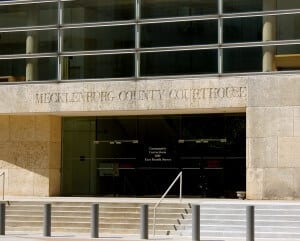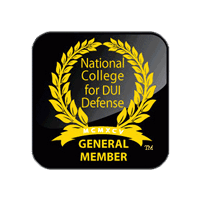Retrograde Extrapolation in DUI Cases | Charlotte DWI Lawyer
Expert Witness Testimony in Retrograde Extrapolation Cases
In certain DUI cases, the State may employ an expert witness to testify about “retrograde extrapolation” of blood alcohol content (BAC). Such cases usually include reported BAC levels below the 0.08% and where there is some unusual delay between arrest and breath or blood testing. The intent is to try to show the defendant’s BAC level at the time of stop was at or above the legal presumptive limit of 0.08%. In other cases, the prosecution may want to improve their case by adding expert witness testimony. Such process is offered as “scientific” evidence, but in fact, it is simply an educated “best guess.” Here is how the calculations “work” and how such evidence can be challenged in court, if not refuted altogether.
First, you should question the offered expert about any formal training received in performing retrograde extrapolation calculations. The witness can then be asked to clarify that this mathematical exercise necessarily depends on good data. More information can give a better, more reliable result. However, if the initial data is limited or flawed, any result can be subjected to scrutiny. Also make sure the jury is aware that retrograde extrapolation evidence makes certain general assumptions and is rarely individualized to a particular person or defendant. Hence, any offered result is inherently suspect and cannot be totally accurate.
Factors That Should Be Included in Calculations
In order to be as complete as possible, the following factors are necessary at a minimum and include a defendant’s gender (male/female), age (we process alcohol differently as we age), height, weight, any food consumed prior to and/or while consuming alcohol, drinking history and frequency, type of alcohol ingested (beer, wine, liquor), total amount consumed, time period, speed (sip, chug, or shots), presence of adverse medical conditions (fever, disease, dehydration). What is really necessary but usually unavailable is how an individual absorbs and processes alcohol. We are all unique, and our bodies respond differently as we get older and how often we use alcohol. This is precisely why retrograde extrapolation is just an exercise in averages and mathematical guessing. To present it to be otherwise is disingenuous. Nevertheless, such testimony is routinely permitted by courts but subject to cross-examination by experienced DUI lawyers.
Verify the Credentials of the Offered Expert Witness
Given the complex nature of this type of testimony, one would expect a mathematician or toxicologist to be tendered. However, as I learned in a recent case where my client had a 0.08% BAC test result over three (3) hours after stop, the State will tender police officers who have completed a basic course on “alcohol pharmacology.” Of course, the legal requirement to be an “expert” is misleadingly low. Basically, if one knows more than the average person, they “qualify” as an “expert” on almost any topic. Defense attorneys make their usual objections only to be overruled by judges who believe more information, even if speculative, is better for a jury’s consideration. In other cases, such as drug based impairment, you will face a truly scientific based expert with advanced degrees in chemistry and biology. These witnesses are more difficult to cross examine, but their inability to be precise in the nebulous world of DWI can be fruitful.
Contrarian Strategy in DUI Defense
Given the expected admission of retrograde extrapolation “experts” at trial, I try to avoid the usual path of making my objection only to be disappointed. Instead, I welcome such expert testimony and even stipulate to their limited qualifications. Frankly, the “science” is so weak and speculative, I prefer to create lots of “reasonable doubt” through the State’s own witness. By showing the “need” for such testimony, I can highlight in closing how truly weak the State’s case must be. Even the State is not completely confident in their case and turn to “mystical science” and an ill-prepared expert to try and strengthen their hand at trial. In some cases, I have been able to effectively use the State’s expert witness to agree with the inherent limitations of breath testing and associated equipment. When the State’s own witness agrees with you, the jury will question the evidence even more closely. This is where doubt can be created and more cases won. Don’t fight battles already fought and lost by other lawyers. Instead, try to keep your focus and win the war. 
If you are someone charged with a Charlotte DWI whose BAC level is less than 0.08%, you may be facing such expert testimony in your case. We hope this information has been helpful and will be honored to answer any additional questions you may have. If you are a criminal attorney seeking information and advice, we are available to help you in this complicated area of DUI defense.
